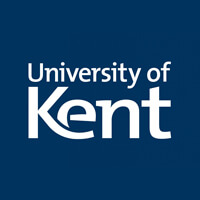fees waived
Biomedical Science, BSc (Hons)
University of Kent, United Kingdom
Ranking in UK
Ecology
Biological Science
Biology
Costs
food & rent S$17.1K / year
Entry requirements
Scholarships
Limited quantity
Information
Code
Intakes
Website (External)
Programmes
Information
Duration
2029
Biomedical science forms the essential foundation of medical practice, enabling healthcare professionals to diagnose and treat conditions like cancer through a deep understanding of the human body. At Kent, our program equips students with vital skills for careers in biomedical science and related fields. The degree is accredited by the Institute of Biomedical Science (IBMS) and the Royal Society of Biology (RSB), with our four-year course featuring advanced accreditation. Graduates gain eligibility for associate membership with RSB, including discounted fees, and develop transferable skills such as research, critical thinking, and problem-solving in a rapidly evolving field focused on disease prevention and emerging health threats.Early in the program, students build expertise in biological chemistry, genetics, molecular and cellular biology, human physiology, disease, and metabolism. Advanced modules cover immunology, haematology, blood transfusion, and pathogens, culminating in a final-year research project that can be lab- or literature-based. Optional modules include neuroscience, bioinformatics, genomics, and cancer biology. Our professionally accredited courses, recognised by the Royal Society of Biology and IBMS, ensure industry-wide validation of qualifications, fostering strong career prospects in a vibrant, student-friendly environment in Canterbury.
Early in your degree you develop your skills as a bioscientist, covering biological chemistry, genetics, molecular and cellular biology, human physiology and disease, and metabolism. Modules go on to include advanced immunology, haematology and blood transfusion, and pathogens. In your final year you complete a research project which can be lab or literature based. You have a broad choice of optional modules including neuroscience, bioinformatics and genomics and cancer biology.
A local representative of University of Kent in Singapore is available online to assist you with enquiries about this course.

